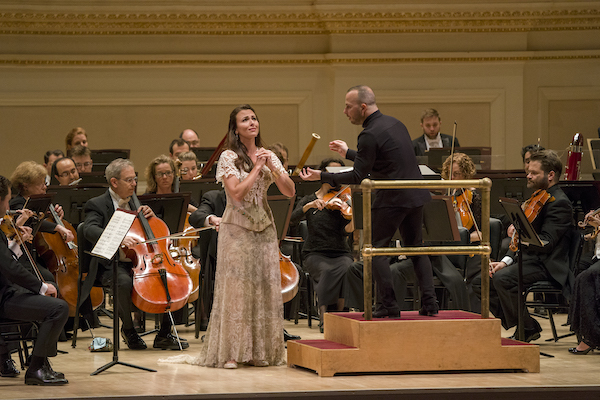 pic from the review of newyorkclassicalreview.
pic from the review of newyorkclassicalreview.MET Orchestra - Yannick Nezet-Sequin - Elina Garanca
June 14, 2019, Carnegie Hall
MET Orchestra - Yannick Nezet-Sequin - Elina Garanca
Mahler - Bruckner
The MET Orchestra returned with this challenging program, which opened with a very fine rendition of Mahler's Ruckert Lieder, exquisitely sung by Latvian mezzo Elina Garanca. Here is a real mezzo with everything: a full range, power, diction and tonal allure. She certainly put last week's Isabel Leonard in the shades and one could not expect more. Although the full brass was too loud in Um Mitternacht, the orchestral contribution was equally ravishing.
As is usually his wont in large symphonic works, Yannick Nezet-Sequin's loving ways and batonless conducting was considerably less successful in Bruckner's Symphony No. 7. Although the playing, in particular the strings and winds, was very fine in general, and the brass chorales in the finale were awesome, there were moments of insecurity. But none of this would have been a problem were it not for the conductor's savoring too many details along the way. Tempi were slow and, beauty notwithstanding, the first movement did not really ebb and flow, as a great Bruckner performance must, and the coda felt like just another episode. Under Nezet-Sequin, the Brucknerian pauses did not feel organic enough to make one anticipate what came next. As the adagio went on, one did start to feel funereal and the dreaded longeur. As a whole, despite fine moments, it was bit disappointing.
